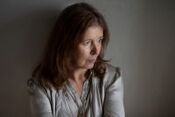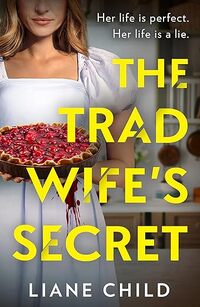1 What is the title of your latest release?
THE TWINS ON THE TRAIN
2 What’s the elevator pitch for your new book?
My agent pitched this as a hot tip for the Frankfurt Book Fair, saying:
“Rosa pushes her way through the crowds and thrusts the basket containing her newborn twins at the woman closing the door to a train carriage, and prays they will reach England safely.”
3 How did you decide where your book was going to take place?
The subject matter of the book determined the locations before I even started. I knew that the headquarters of the Quakers who lobbied the British government to allow the Kindertransports to happen, was in London. Although the early trains departed from Vienna, the later ones left from Berlin, so I knew that was where the Jewish family experiencing terrifying restrictions had to live and work.
4 Would you hang out with your protagonist in real life?
I have a lot of friends who are strong independent women, so I think I would definitely form a friendship with Dora and Rosa. I think I would find Dora’s cousin Verity annoying as she is so shallow and flippant early on, but I might have liked her later as she matured through her troubles.
5 What are three words that describe your protagonist?
This book has two main protagonists because there are viewpoints from both sides. Rosa and Dora are both principled, strong and brave in their own ways although their upbringing and way of life is so different.
6 What’s something you learned while writing this book?
I did a lot of research for this book, including access to eyewitness statements in the Quaker archives in London, which gave me ideas for some of the dramatic incidents in the plot. I knew that the Quakers had to do a tremendous amount of work to organize the transports, but I hadn’t realized how much individuals, mostly women, had undertaken, putting themselves at risk as they travelled backwards and forwards to Germany negotiating with officials. I also found that despite having a general awareness of the antisemitic restrictions being introduced in those times, I hadn’t fully appreciated how threatening they would have felt until I applied them to the life of my character Rosa.
7 Do you edit as you draft or wait until you are totally done?
I do make slight alterations as I write, usually checking the previous day’s work before continuing, but I save the major editing for when the work is more or less complete. That way I can see the shape as a whole and better assess the pacing of the story. I also often write key incidents out of sequence and decide later where to place them in the work.
8 What’s your favorite foodie indulgence?
I have to have tea every afternoon, to give me the energy to carry on working. At present I am enjoying buttered toasted malt loaf, with two large mugs of strong tea.
9 Describe your writing space/office!
I am lucky to have a dedicated office which is a glorified purpose-built garden shed. It is heated and has shelves of books, piles of reference material and a comfy sofa bed where I sometimes need an afternoon nap after a hard day’s work! There are paintings and drawings by my husband on the walls and in one corner a hand-made dolls house filled with tiny furniture and accessories. From my desk I can see the farmland surrounding our thatched cottage through windows cut like portholes into a high hedge.
10 Who is an author you admire?
There are several whose books I rush to buy, but I particularly love the following: Sarah Winn for her imagination and descriptive language, Maggie O’Farrell for her unusual relationships and plots, and Kate Atkinson for her incredibly complicated clever plotting.
11 Is there a book that changed your life?
The first book that made me think I wanted to write fiction was Lorna Doone, which I read when I was about twelve. And for a masterclass in how to write a thrilling story, I always go back to Daphne du Maurier’s Rebecca – my comfort read.
12 Tell us about when you got the call.
I had been writing seriously for about ten years before my first novel was published. That was MY NAME IS EVA, which had been rejected by over twenty agents before it was picked up by Bookouture. That email and follow-up phone call was one of the most exciting moments of my life. Luckily I was ready for my editor’s first question, which was ‘What else do you have?’ and I tell would-be writers that all the time. You mustn’t stop with one book as a publisher will want a continuing success.
13 What’s your favorite genre to read?
I read a wide range of novels and very rarely read WW2 fiction, even though I write about that time. And I don’t like violent, grim psychological thrillers as I find them depressing. I like books which are intriguing, puzzling and keep me guessing, so John Le Carre and Robert Harris are two of my favorite authors. But I also love a good yarn and have enjoyed all of the novels in The Ashes of London series by Andrew Taylor, set in the years following the Great Fire of London.
14 What’s your favorite movie?
It has to be A Wonderful Life of course, as that is sentimental and uplifting, but I also love Some Like it Hot, Notting Hill and Gone with the Wind. Whenever any of those pop up on TV I get drawn in – again.
15 What is your favorite season?
It is currently autumn here in the UK and the garden is full of color as the dahlias are still in flower and trees are turning red and orange. But most of all I love spring, for the first signs of new life, such as snowdrops emerging and hellebore buds swelling beneath their old leaves, which I trim back to reveal the new flowers.
16 How do you like to celebrate your birthday?
Most of all I like to celebrate with a lunch or dinner with my immediate family. However this year my husband has been seriously ill in hospital since the middle of the summer, so we celebrated with cards and small presents at his bedside. One of my daughters managed to distract me and sneak a card to him, which he shakily signed and fooled me into thinking he’d persuaded a nurse to buy the card! My daughters and I then spent the night at a luxury hotel with a spa, enjoying dressing up for a wonderful dinner.
17 What’s a recent tv show/ movie/ book/podcast you’d recommend?
Although it published a year ago, I have raved about In Memoriam by Alice Winn, for its beautiful writing and poignant story about the young men who fought in WW1. It is tragic and sensitive, evoking the voices of naïve schoolboys as they develop into battle-hardened men. The film I most recently saw was Kate Winslett’s Lee, which I think was wonderful for its sensitive handling of tough material.
18 What’s your favorite type of cuisine?
My family and I have spent a lot of time in Cornwall where there is marvelous seafood, particularly crab and lobster. We have a cottage in Port Isaac, home of Doc Martin, and in season I like nothing better than to walk to the fish cellars to buy freshly cooked local crab caught out in the bay. It’s the best there is.
19 What do you do when you have free time?
At present my free time is very limited because of hours spent at the hospital and as a result my garden is greatly neglected. But if I can, I like to spend a couple of hours every day working in the garden and enjoy heavy work such as digging out the compost heap just as much as planting up pots. This year I gave up on growing potatoes and grew a variety of dahlias which have given me months of brightly colored flowers for the house.
20 What can readers expect from you next?
I am under contract to produce two more books for Bookouture and have already started writing book 9. It is set in London during the present day and during the Blitz and tells the story of a house with a secret, bought by a young couple who think they have found the perfect home in which to raise a family. But have they?

Berlin, 1939. Tears pouring down her cheeks, Rosa pushes through the crowds and thrusts the basket containing her darling newborn twins at the woman closing the door to the carriage. All she can say is please take them. Then she runs, praying the train will reach England safely…
As the smell of smoke drifts through the air, Jewish people lock their doors. They no longer feel welcome in their home city, and while some mothers hide their children, others take them, clad in dark threadbare coats, to the crowded train station and the hope of a new life.
Rosa has feared for her twins since they were born two weeks ago. As she huddles in her filthy house, crammed in with her neighbours, she sees children growing weaker. It may be too late for her and her seven-year-old daughter Therese. But can she find a way out for her precious babies?
Dora scans the desperate crowd on the platform, despairing as she knows there isn’t room for all of them on the train to England. And when a woman thrusts a basket containing newborn twins into her arms, a shiver of dread slides down her spine. Babies aren’t authorised to travel – how can she keep them hidden from the cold-eyed soldiers?
She knows this mother wants the same thing she does – safety for these innocent children. But will she be able to help this brave woman before it is too late?
An unforgettable World War Two novel about two courageous women who risked everything for the innocent victims of war. Fans of The Nightingale and The Alice Network will be utterly gripped by this unputdownable page-turner from bestselling author Suzanne Goldring.
Women's Fiction Historical [Bookouture, On Sale: October 30, 2024, Paperback / e-Book, ISBN: 9781835256190 / ]

Following an eventful career as a public relations consultant, specializing in business and travel, Suzanne Goldring turned to writing the kind of novels she likes to read, about the extraordinary lives of ordinary people. She writes in a thatched cottage in Hampshire and a cottage by the sea in North Cornwall. My Name is Eva was inspired by visiting elderly ladies in care homes and an aunt's touching wartime letters saved from the flames.
No comments posted.


 © 2003-2025 off-the-edge.net
all rights reserved Privacy Policy
© 2003-2025 off-the-edge.net
all rights reserved Privacy Policy